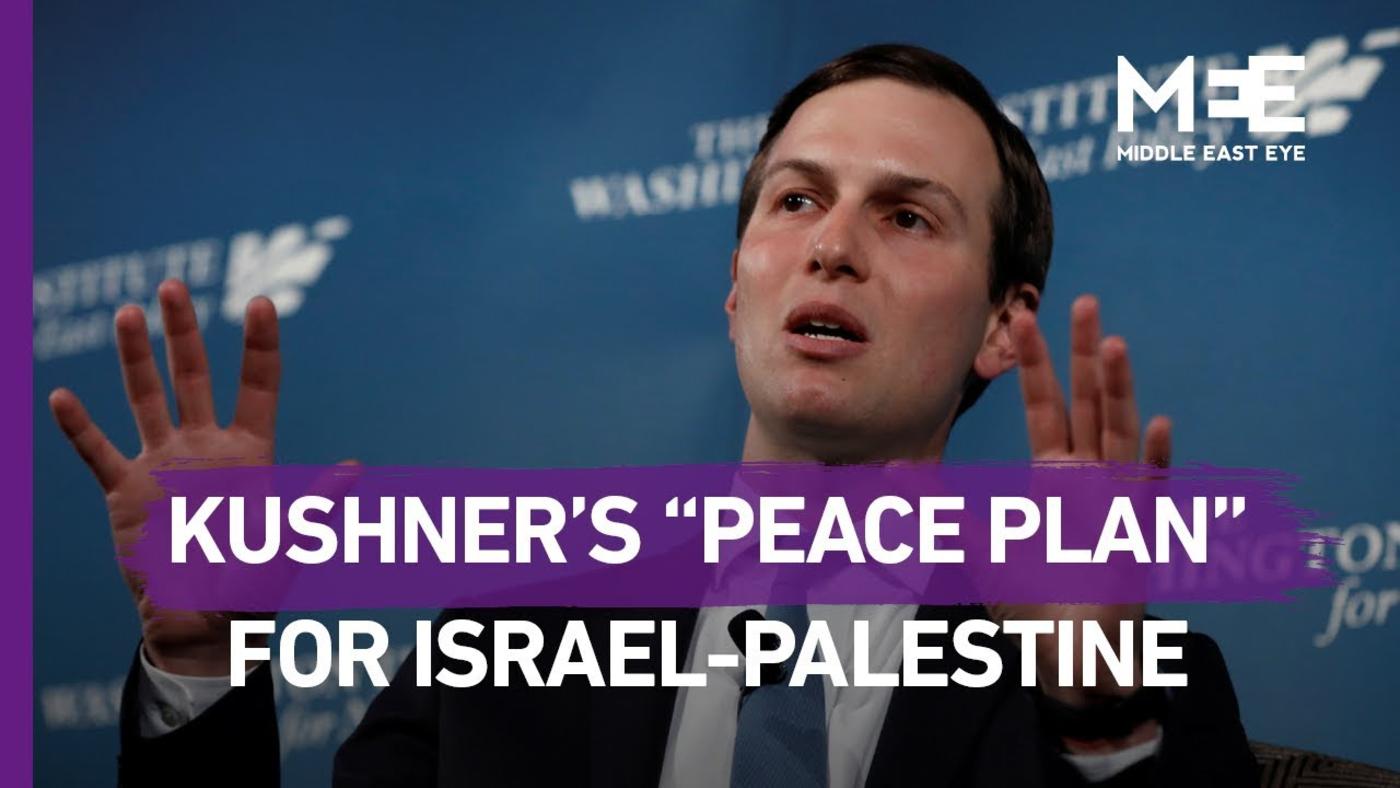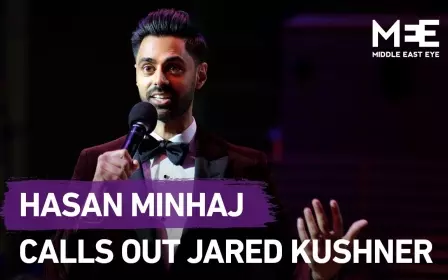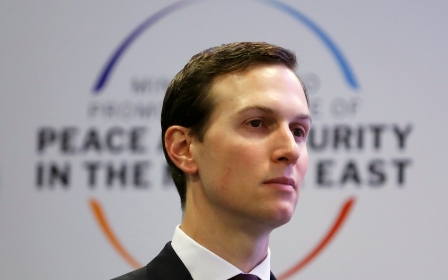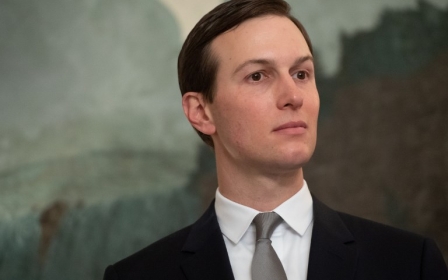Kushner suggests deal of the century will not mention 'two-state' solution
Speaking at a think tank on Thursday, Jared Kushner, senior adviser to US president Donald Trump, has indicated that the much-touted American "deal of the century" for Israel and Palestine will most likely avoid mentioning a "two-state" solution.
"If you say 'two-state,' it means one thing to the Israelis, it means one thing to the Palestinians," Kushner said. "So we said, 'you know, let's just not say it. Let's just work on the details of what this means.'"
Without giving much in the way of details, Trump's son-in-law shied away from labelling the deal a political framework, saying: "We're going away from all the typical diplomatic speak ... What we've put together over the last year is I would say more of an in-depth operational document."
Speaking at the Washington Institute for Near East Policy, the real estate developer turned political adviser referred to the economic components of the deal as "a good business plan". He added that the Middle East peace proposal would be a "good starting point" to address the Israeli-Palestinian conflict.
Kushner, who is married to Donald Trump's daughter Ivanka, has been working on the peace plan for about two years and is expected to unveil his proposals in June after the Muslim fasting month of Ramadan.
"I was given the assignment of trying to find a solution between the two sides, and I think what we'll put forward is a framework that I think is realistic ... it's executable and it's something that I do think will lead to both sides being much better off," Kushner said.
The proposal, which has been delayed for a variety of reasons over the past 18 months, has two major components. It has a political piece that "recognise truths", Kushner said, namely the US move to view Israel's capital as Jerusalem, which has been met with widespread condemnation.
It also consists of an economic part that aims to help the Palestinians strengthen their economy, the White House adviser said, without divulging details.
Kushner, who has been developing the plan with Middle East envoy Jason Greenblatt, has said the proposal is not an effort to impose US will on the region.
Palestinians have voiced scepticism about the effort led by a political novice and Trump family member, who was a real estate developer before joining his father-in-law as a senior White House adviser.
Arab officials and analysts believe the plan is likely to be decidedly pro-Israel since the Trump administration has taken a tough line towards Palestinians, cutting off aid and ordering the PLO's office in Washington shut.
Greenblatt has said US negotiators expect that Israelis and Palestinians will both be critical of some parts of the plan.
Asked about Israeli Prime Minister Benjamin Netanyahu's vow to annex Israeli settlements in the West Bank, Kushner said once a new Israeli government has settled in, "we'll have a discussion".
Netanyahu was tasked with forming a new government after his success in the 9 April elections.
"I hope both sides will take a real look at it, the Israeli side and the Palestinian side, before any unilateral steps are made," Kushner said, adding he had not discussed the issue of settlement annexation with Netanyahu.
Middle East Eye delivers independent and unrivalled coverage and analysis of the Middle East, North Africa and beyond. To learn more about republishing this content and the associated fees, please fill out this form. More about MEE can be found here.





